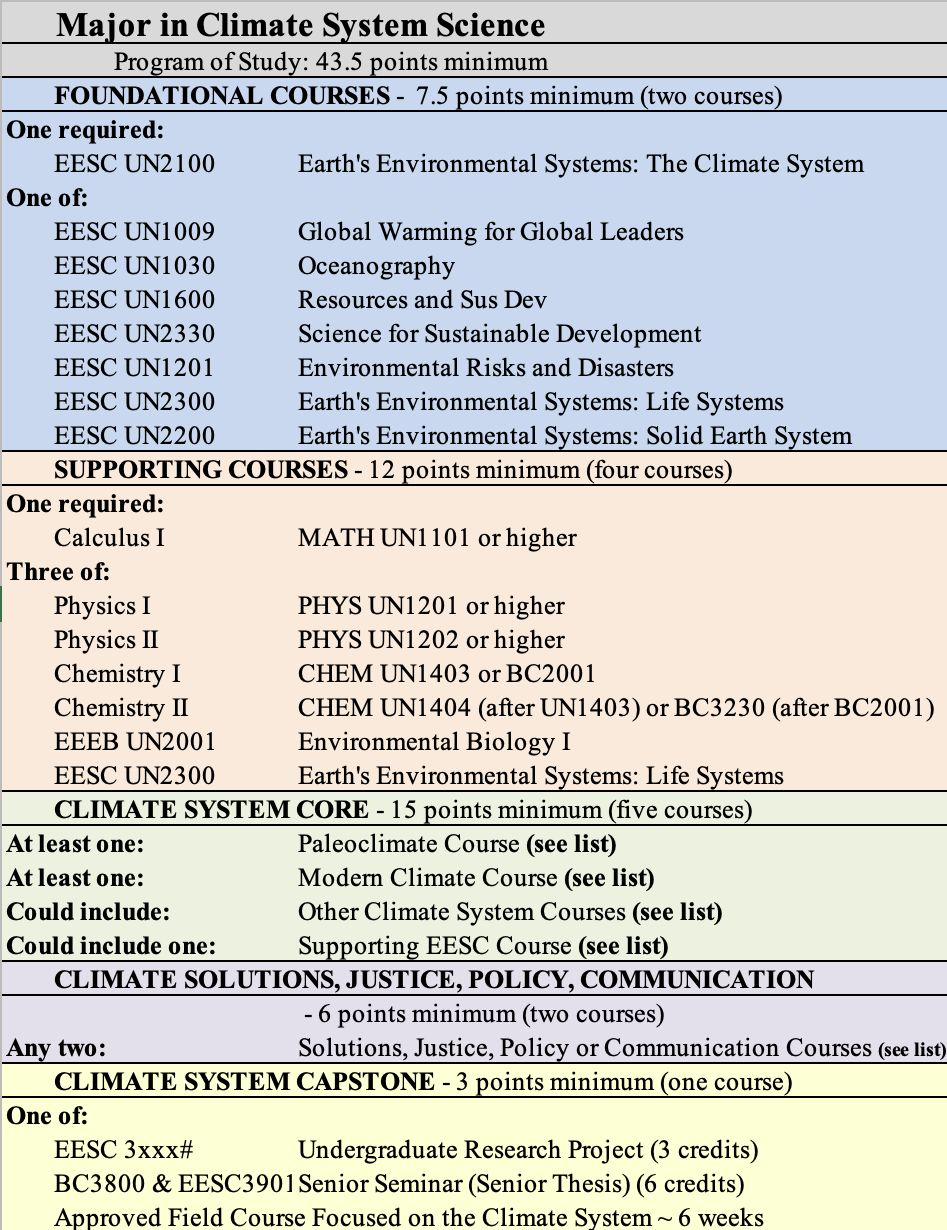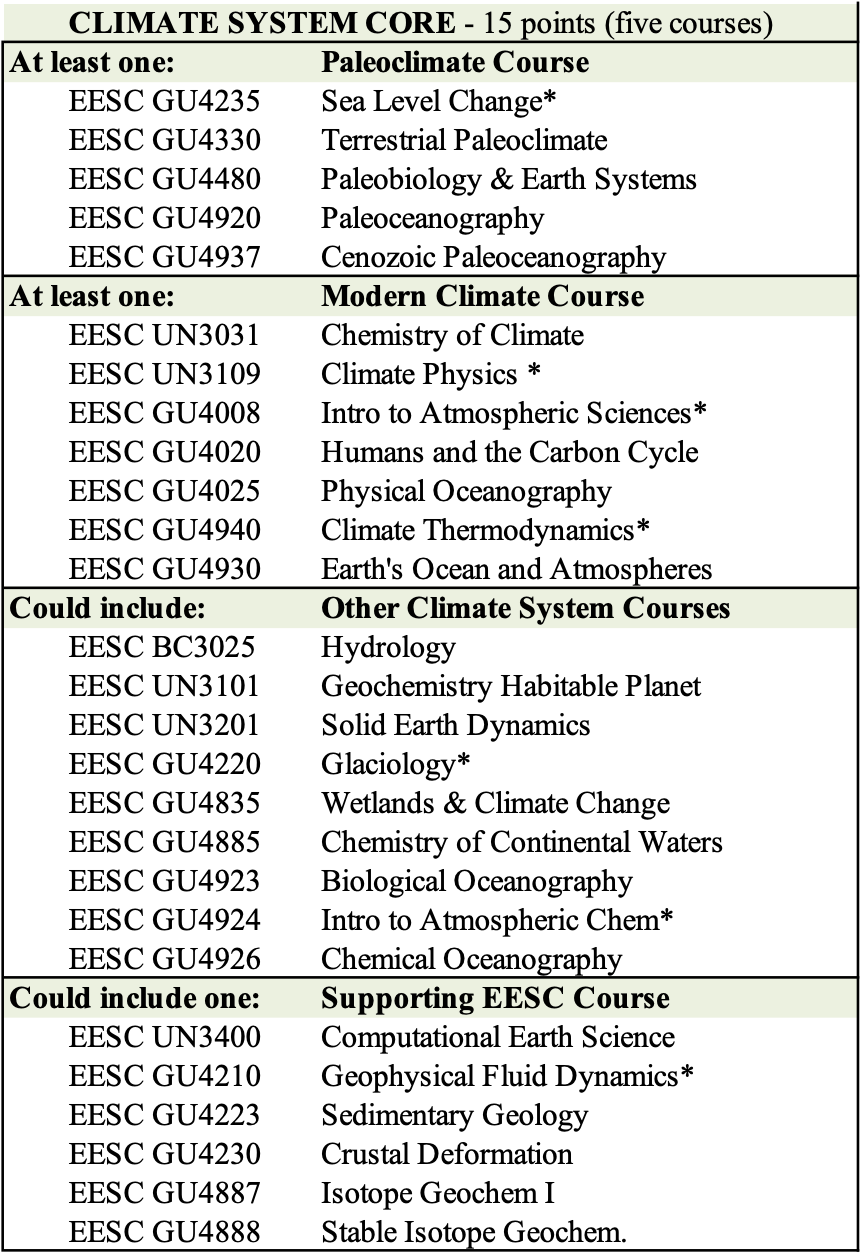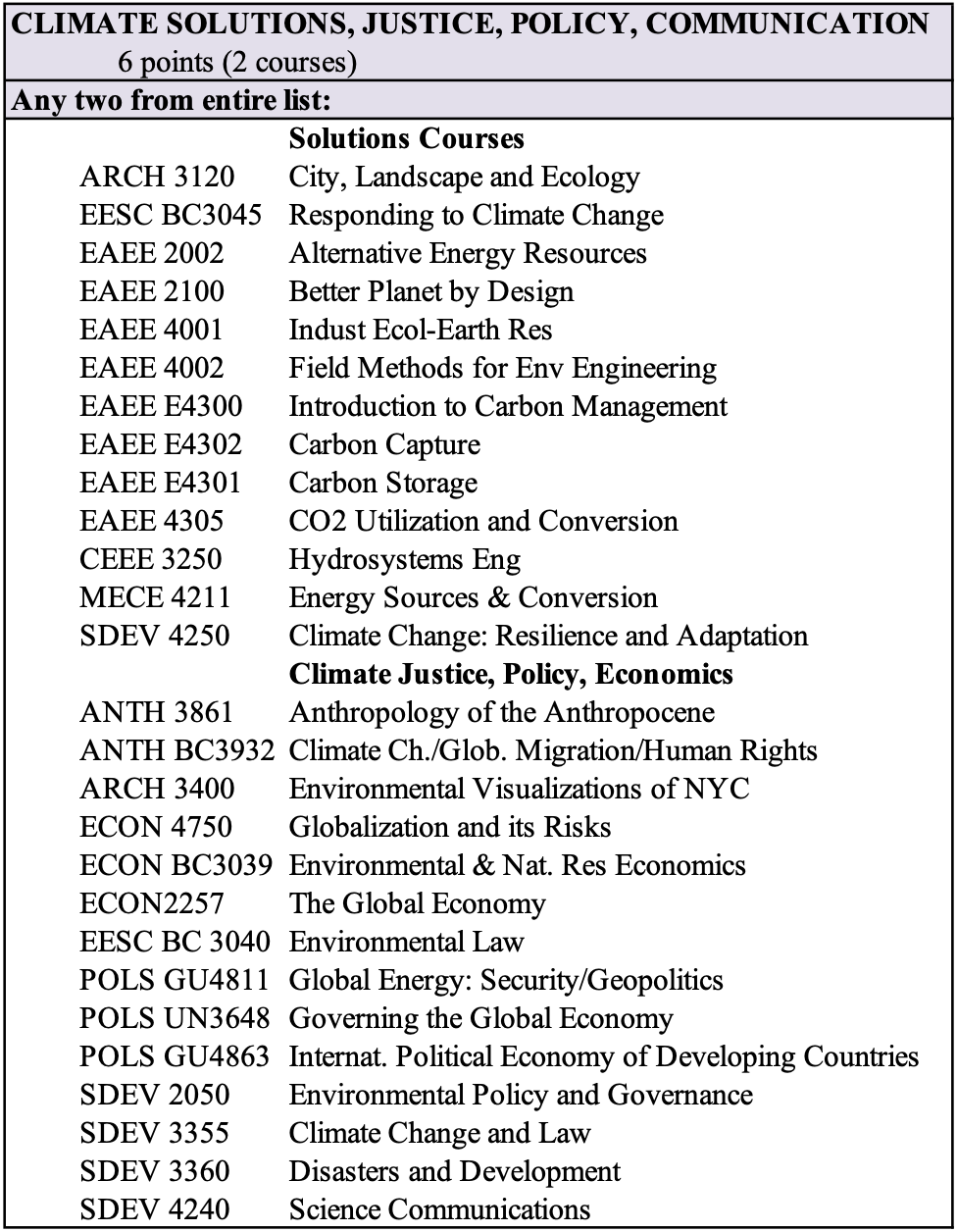Climate System Science Major
The Climate System Science major is designed for students who are interested in how the past, present, and future climate system works and in solution strategies for the rapidly accelerating climate crisis. The overall goal is to establish the fundamental sciences at the core of the climate system, and to inspire solution-oriented analytical thinking and expertise. The flexible course structure combines geology, physics, biology, chemistry and math with a core in climate system science and climate solution, justice, policy and communication courses. Sample tracks through the major in sea level change, decarbonization and modern climate link to the mission and applied centers of Columbia’s Climate School. We believe that any admitted student has the potential to succeed in climate science.
The major requires a minimum of 43.5 points to be completed. Climate system science majors begin with foundational courses in the climate system and introductory courses in global warming, oceanography or other relevant topics. Supporting courses include a grounding in calculus and natural sciences. Five climate core courses include both paleoclimate and modern climate requirements, as well as three other electives. Students pursue topics in climate solutions, policy, justice and communication in courses outside the sciences, in architecture, economics, political science or engineering. All climate system science majors are required to complete a capstone experience, which can include a field course or an independent research project, typically at the Lamont-Doherty Earth Observatory with guidance from a leading climate scientist.
Students planning to go to graduate school in Climate Science should consult with their faculty advisor in DEES and/or the DUS, as requirements vary among programs.


